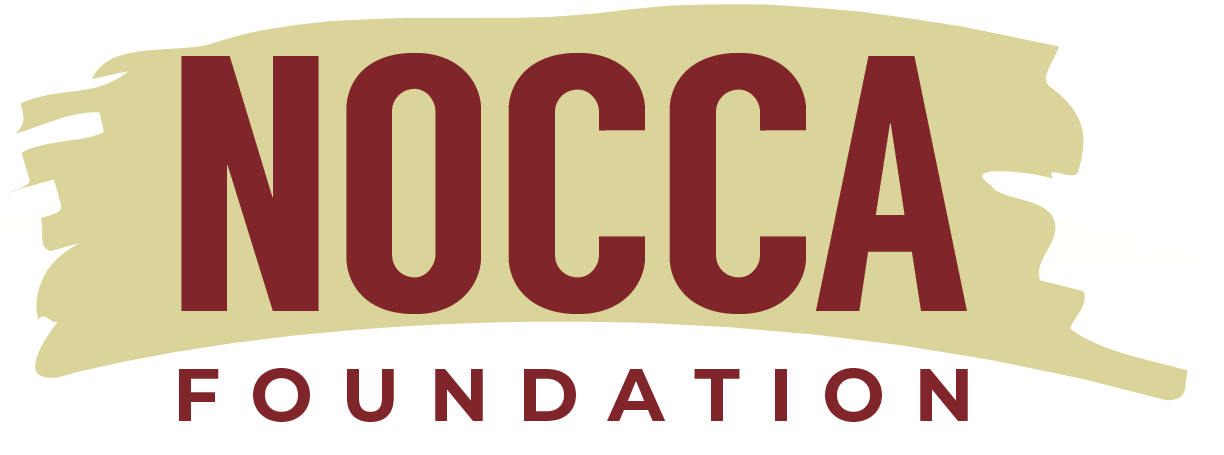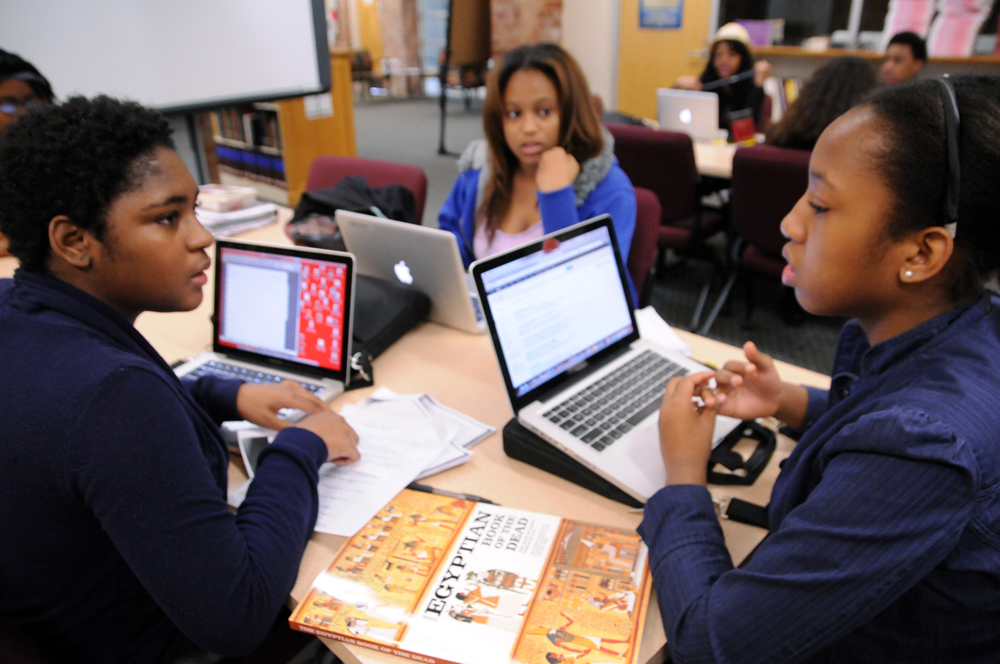Thoughts on the first year of NOCCA’s groundbreaking Academic Studio program, from faculty, staff, and students:
In year one of the Academic Studio, 9th graders studied the beginnings of all humanity; dived into scientific thinking and exploration; experienced the joy of finding math in everything; studied languages of many ancient civilizations; and discovered how to learn on their own.
The end-of-year Portfolio Day was a real window into students’ capabilities. Projects as diverse as a comparative analysis of who was the greater leader – Alexander the Great or Cyrus the Great, the physics of ice-skating, the probability of correctly selecting a prize, and the persuasive factors of political speeches exemplified a high level of work, connected learning and deep discussion. Portfolio projects for each course of study, however, are just one means by which we are assessing the progress and success of the Academic Studio.
There is no screening for achievement in academics for incoming NOCCA students, so the range of ability and previous educational experiences is extremely wide. In May 2012, students took the End of Course (EOC) test for Algebra I. EOC results were extremely promising, with 73% of NOCCA Academic Studio students taking the test for the first time scoring excellent or good; (76% of the full class did so). This means that NOCCA’s 2011-12 scores outpaced the corresponding scores for 90% of Louisiana parishes.
We are achieving our goal: to engage students’ passion for academics at the same level they have for their arts, and to give students the tools they need to be successful artists, intellectuals and citizens. I congratulate a remarkable faculty, administration, student body and their parents for all their hard work and dedication to re-imagining all that learning can be.
— by Kyle Wedberg, President/CEO
Just as technical grounding is essential to students as they grow in their understanding of the arts and humanities, we have found this concept equally indispensable for the building of our math and science curriculum. So much of a student’s future success in the STEM disciplines (science, technology, engineering and math) hinges upon mastering basic math skills, and that’s what our first round of EOC results indicates is happening.
However, technical proficiency must also be combined with a sense of wonder and an active curiosity. We do not believe that mastery of a skill set alone is enough to spark and sustain meaningful inquiry, but it’s certainly a starting point.
Our hope is that we are creating an environment at NOCCA where students are encouraged to take intellectual risks – ambitious and thoughtful stretches of their creative and academic abilities – but where the ultimate motivation for making those leaps comes from the students themselves. It is our job to see that the students have the best preparation and support available to follow the promptings of their imaginations.— by Dr. Dan Webre, Science/Math Faculty
I see the successes we experienced in the Academic Studio this year as by-products of our efforts as an academic community to connect with and build upon many of the principles that have allowed NOCCA to be so successful for so long. Most important among these principles is that we treat our students as young intellectuals in their own right, just as they are treated as young artists in their arts disciplines.
Taking on the role of an intellectual allows students to really dig into questions and ideas that inspire them, while also assuming the responsibility to develop the technical grounding and content knowledge necessary to write and speak with authority on topics they have taken up in their research.
This dual role, characterized by both tremendous freedom and responsibility, takes time to grow into, and mastering the research, writing, vocabulary and presentation skills (among others) that it takes to develop solid intellectual work takes time. In truth, many students spent much of the first months of the school year swinging between sheer excitement and bewilderment as they reached for new concepts and skills with mixed results. But they took on the risks implied and their growth was tremendous.
— by Dr. Spree MacDonald, Integrated Humanities Faculty
What NOCCA excels at is seamless shifting from class to class. With the Academic Studio, you never leave your academic classes or your arts for the other. It’s an environment where the arts are utilized in every core subject and where many classes are intertwined to form a relationship between two seemingly unrelated subjects. We learn how everything that we know – and will discover – can be connected. And shouldn’t that be the goal of education: learning about the world as an integrated whole?
— by student Grayton Newman
“Our teachers allow us to learn information in so many ways and as we each learn best. We can learn from class discussions, group activities, individual projects, and especially from each other’s own research. After one year in the Academic Studio, I finally feel like I am not obligated to learn, but that how and what I learn is a privilege that many other students do not have.”
— by student Prinsey Walker
“Our teachers push the limits of our understanding. For instance, in humanities, we delved deeply into how a people lived, worked, believed, governed and created. Our teachers are passionate about what they teach, which makes us passionate and want to learn even more. We feel connected to our teachers, not separate.”
— by student Tori Borja
“Our Academic Studio faculty want us to enjoy learning as much as they do. Beyond enjoying learning, they want us to excel in learning. Beyond excelling in learning, they want us to excel in everything we choose to do. They are as willing to help us with math homework as with a monologue. They help when we are down and celebrate when we are up. They have a personal connection with students which makes school so much easier.”
— by student Mary Frances Candies
“I have a whole bigger family in this school. There is so much support. For example, if you don’t know the answer or understand the question on a pre-quiz, you write you don’t know. The teacher will go over the problem step by step and you don’t move on until you get it right. You can also produce creative projects of your own design. I can make videos, write stories. It’s exciting!”
— by student Nick Baquet

